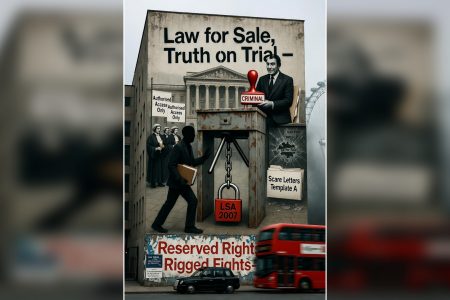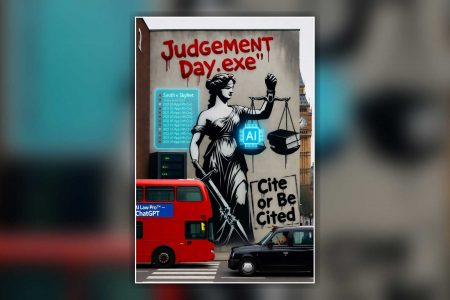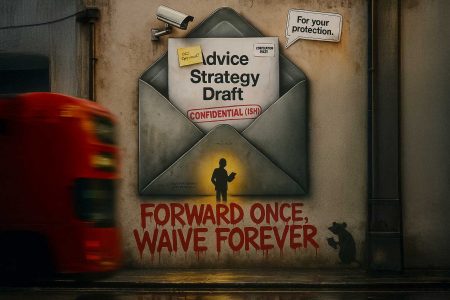This article explains, with reference to the Legal Services Act 2007 and leading cases, what non-regulated legal consultants can lawfully do—and why threats of criminal liability for unreserved activities are unfounded.
The UK judiciary’s latest AI guidance demands strict verification, confidentiality, and personal accountability for all AI-assisted legal work.
A sharp, LiP-ready manual on LPP—how to keep advice and litigation strategy privileged, avoid waiver, and handle regulators/FOI, updated to 2 Nov 2025.
Britain’s vaunted equality framework masks a daily reality where disabled and neurodivergent people remain excluded, detained and ignored because weak enforcement, elastic legal tests and political drift strip statutory rights of practical meaning.
Weaponised identity politics is corroding UK public life by turning honest criticism into hate smears—here’s why it matters and what we can do.
Despite robust UK safeguarding statutes, repeated scandals reveal systemic failures that demand urgent, unapologetic reform.
The UK’s whistleblowing regime promises protection but, in practice, enables institutional retaliation that silences staff and imperils the public.
In March 2025, ten women – among them doctors, a nurse, and a nuclear industry whistleblower – launched a legal challenge against the UK’s judicial watchdog. They allege that an employment judge, Philip Lancaster, bullied and biased proceedings in their cases, yet the Judicial Conduct Investigations Office (JCIO) refused to investigate.[^1] One complainant, Alison McDermott, … Continue reading “Unmasking an ‘Old Boys’ Club’: Freemasonry, Whistleblowers and the UK Justice System”
AI is revolutionising UK civil litigation, but risks of bias, confirmation bias, and threats to due process raise serious concerns for fairness and justice.
Discover the key obstacles UK Litigants in Person face and practical strategies to overcome them.










